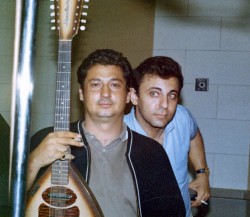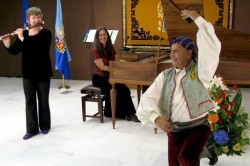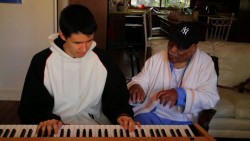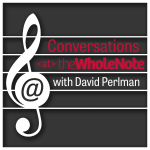Jamie Parker: 15.02.09
David Perlman talks with Jamie Parker about his work with Music Toronto, the Gryphon Trio and what it's like being a pianist, a professor and a Parker.
To hear the full conversation with Jamie Parker click the play button below. For any of our other podcasts, search for “The WholeNote” in your favourite podcast app, or go to TheWholeNote.com/podcasts for the entire list.
Or click here to download the podcast. (Right click and "Save as..." if it's playing directly in your browser.)







